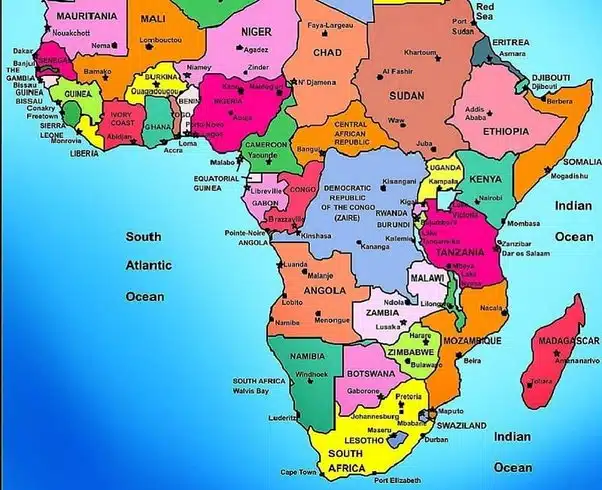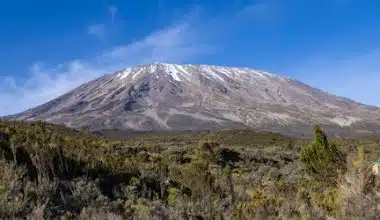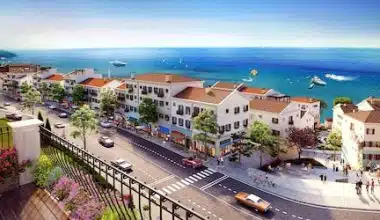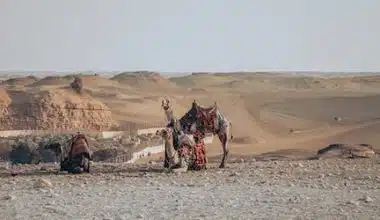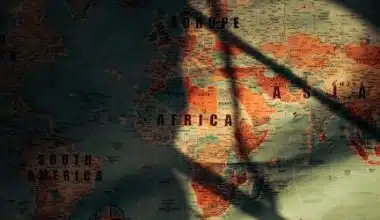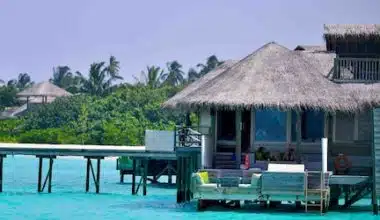Discovering the enchanting beauty and diverse cultures of Africa’s island countries is a captivating journey. Africa is home to several island countries with unique cultures, geography, and histories. Madagascar, Seychelles, Mauritius, Comoros, Cape Verde, São Tomé and Príncipe, Mauritania, Zanzibar, Mayotte, and Equatorial Guinea are some of the most notable. Madagascar is the fourth-largest island in the world, known for its biodiversity and stunning landscapes. Zanzibar, Mayotte, and Equatorial Guinea are also popular tourist destinations. This article lists beautiful and exciting African island countries you can visit for your vacation with your family.
African Island Countries
Africa is home to several island countries, each with its own unique culture, geography, and history. These African island countries offer a wide range of natural beauty, cultural diversity, and unique experiences. From the volcanic landscapes of Reunion and Mayotte to the rich cultural heritage of Zanzibar and Equatorial Guinea.
The African island countries include:
#1. Madagascar
Located off the eastern coast of Africa, Madagascar is the fourth-largest island in the world. It is known for its rich biodiversity, unique wildlife, and stunning landscapes.
#2. Seychelles
Situated in the Indian Ocean, northeast of Madagascar, the Seychelles is an archipelago comprising 115 islands. It is famous for its pristine beaches, coral reefs, and nature reserves.
#3. Mauritius
Mauritius, located in the Indian Ocean, east of Madagascar, is known for its stunning beaches, turquoise waters, and vibrant cultural heritage. It is a popular tourist destination and offers a mix of natural beauty and cultural experiences.
#4. Comoros
Comoros is an archipelago located off the eastern coast of Africa, in the Indian Ocean. It consists of four main islands and is known for its volcanic landscapes, beautiful beaches, and rich cultural heritage.
#5. Cape Verde
Situated off the western coast of Africa, Cape Verde is an archipelago consisting of ten volcanic islands. It is known for its vibrant music, diverse landscapes, and beautiful beaches.
#6. São Tomé and Príncipe
Located in the Gulf of Guinea, São Tomé and Príncipe is an island nation comprising two main islands and several smaller ones. It is known for its lush rainforests, volcanic peaks, and stunning beaches.
#7. Mauritania
Mauritania is a country located in Northwest Africa, with a small portion of its territory on the Atlantic coast. It is known for its vast desert landscapes, ancient cities, and rich cultural heritage.
#8. Zanzibar
Zanzibar is a semi-autonomous region of Tanzania located off the east coast of Africa in the Indian Ocean. It consists of several islands, with Unguja Island being the main island. Zanzibar is famous for its beautiful white sandy beaches, historic Stone Town, spice plantations, and vibrant Swahili culture.
#9. Mayotte
Mayotte is an overseas department and region of France located in the Indian Ocean, between Madagascar and the coast of Mozambique. It is the southernmost island of the Comoro Islands archipelago. Mayotte is known for its beautiful beaches, coral reefs, and diverse marine life.
#10. Equatorial Guinea
Equatorial Guinea is a country located on the west coast of Central Africa. It consists of the mainland region and several islands, including Bioko Island and Annobón Island. Equatorial Guinea is known for its rich biodiversity, pristine beaches, and unique cultural heritage.
Characteristics of African Island Countries
African island countries possess unique characteristics that set them apart from mainland nations. These characteristics contribute to the distinctiveness and allure of African island countries, making them fascinating destinations with rich natural, cultural, and historical offerings.
These are the notable characteristics:
#1. Geographical Diversity
African island countries exhibit diverse geographical features, including volcanic landscapes, lush rainforests, stunning beaches, and coral reefs. For example, Reunion Island is known for its active volcano, Piton de la Fournaise, while the Seychelles boasts pristine beaches and abundant marine life.
#2. Cultural Heritage
These island nations have rich cultural heritages influenced by various factors such as indigenous populations, colonial history, and trade routes. For instance, Zanzibar’s historical ties to Arab, Persian, Indian, and European traders have shaped its vibrant Swahili culture.
#3. Biodiversity
Many African island countries are renowned for their unique and diverse ecosystems. Madagascar, often referred to as the “eighth continent,” is famous for its exceptional biodiversity, with a high number of endemic plant and animal species found nowhere else on Earth.
#4. Tourism and Leisure
The natural beauty, pristine beaches, and unique cultural experiences offered by African island countries make them popular tourist destinations. Mauritius, for example, attracts visitors with its luxury resorts, water sports, and vibrant cultural festivals.
#5. Economic Challenges
Despite their natural beauty and tourism potential, some African island countries face economic challenges. The pandemic has significantly impacted tourism-dependent economies, leading to a decline in GDP and increased vulnerability. Efforts are being made to support economic recovery and resilience in these nations.
#6. Political and Historical Context
African island countries have diverse political systems and historical backgrounds. Some, like Cape Verde and São Tomé and Príncipe, have transitioned to democratic governance, while others, such as Comoros, have experienced political instability.
#7. Isolation and Endemism
Due to their isolation, many African islands have developed unique ecosystems with high levels of endemism. Madagascar, for example, is renowned for its exceptional biodiversity, with a large number of plant and animal species found nowhere else on Earth.
#8. Volcanic Origins
Most African islands, except for Madagascar, are volcanic in origin. They often feature rugged landscapes, volcanic peaks, and fertile soils. Reunion Island, for instance, is home to an active volcano, Piton de la Fournaise.
#9. Geographical Location
African island countries are scattered across different regions of the continent. Some are located in the Indian Ocean, such as Seychelles, Mauritius, and Comoros, while others are found in the Atlantic Ocean, like Cape Verde.
#10. Territorial Status
Some African islands are territories of other countries. For example, the Canary Islands and the Balearic Islands are territories of Spain, while the French overseas departments of Reunion and Mayotte are located in the Indian Ocean.
West African Island Countries
The West African island countries include Cape Verde and São Tomé and Príncipe. Cape Verde is an archipelago known for its beautiful beaches, vibrant culture, and music. São Tomé and Príncipe, situated in the Gulf of Guinea, is an island nation with lush rainforests, volcanic landscapes, and a reputation for cocoa production.
Things to Do in West African Island Countries
Although West African island countries may not have as many islands as other regions, they still offer unique experiences and activities.
The things to do in these island nations are:
#1. Explore Beautiful Beaches
West African islands are known for their stunning beaches with crystal-clear waters and soft sands. Spend time relaxing, swimming, and enjoying water activities like snorkeling or diving to explore the vibrant marine life.
#2. Discover Natural Landscapes
West African islands offer diverse natural landscapes. Explore lush rainforests, hike through volcanic peaks, and visit waterfalls. São Tomé and Príncipe, for example, have beautiful rainforests and hiking trails.
#3. Experience Wildlife
Some West African islands are home to unique wildlife. Take the opportunity to spot endemic bird species, observe marine life while snorkeling or diving, or visit nature reserves to see native animals.
#4. Enjoy Water Sports
West African islands provide excellent opportunities for water sports. Try surfing, kiteboarding, or fishing in the Atlantic Ocean. Cape Verde, in particular, is known for its great surfing spots.
#5. Learn about History
West African islands have a rich historical background. Visit historical sites, such as colonial buildings or museums, to learn about the islands’ past and their role in regional history.
#6. Engage in Ecotourism
West African islands are committed to environmental conservation. Support ecotourism initiatives, visit nature reserves, and learn about local efforts to protect unique ecosystems and biodiversity.
#7. Attend Festivals and Events
Experience the vibrant local culture by participating in festivals and events. Cape Verde hosts the lively Carnival of Mindelo, while São Tomé and Príncipe celebrates the Feast of São João dos Angolares with traditional dances and music.
#8. Sample Local Cuisine
West African island countries offer unique culinary experiences. Try local dishes such as “cachupa” (a Cape Verdean stew), fresh seafood, tropical fruits, and traditional desserts like “coca-da” (coconut candy).
#9. Explore Nature Reserves and Parks
Discover the natural beauty of the islands by visiting nature reserves and parks. São Tomé and Príncipe’s Obo National Park and Cape Verde’s Monte Gordo Natural Park are excellent choices for nature enthusiasts.
#10. Learn about Local Arts and Crafts
West African islands have a rich artistic heritage. Explore local art galleries, craft markets, and workshops to learn about traditional art forms, such as woodcarving, pottery, and weaving.
Challenges of West African Island Countries
West African island countries face various challenges that impact their development and sustainability.
#1. Climate Change
Climate change poses significant threats to West African island countries. Rising sea levels, increased frequency of extreme weather events, and changing rainfall patterns can lead to coastal erosion, flooding, and damage to infrastructure These countries are particularly vulnerable to the impacts of climate change due to their small size, limited resources, and dependence on natural resources.
#2. Limited Resources and Infrastructure
West African island countries often face limitations in terms of resources and infrastructure. This can hinder their ability to address developmental needs, provide basic services, and respond effectively to challenges such as healthcare, education, and transportation.
#3. Economic Vulnerability
Many West African island countries have small and fragile economies, often relying on a few sectors such as tourism, agriculture, or fisheries. Economic shocks, such as global economic downturns or disruptions in these sectors, can have a significant impact on their economies and livelihoods.
#4. Healthcare and Disease Outbreaks
West African island countries, like other regions, face challenges in healthcare infrastructure and access to quality healthcare services. Disease outbreaks, such as the Ebola epidemic, can strain healthcare systems and have severe social and economic consequences.
#5. Environmental Degradation
The natural environment of West African islands is vulnerable to degradation due to factors like deforestation, soil erosion, and pollution. These issues can impact ecosystems, biodiversity, and the availability of natural resources, affecting both the environment and the livelihoods of local communities.
#6. Limited Access to Development Finance
West African island countries often face challenges in accessing development finance and international climate funds to support their adaptation and mitigation efforts. Complex requirements and capacity gaps can hinder their ability to access and utilize these funds effectively.
#7. Limited Access to Energy
West African islands often face challenges in accessing reliable and affordable energy sources. This can hinder economic development, limit access to basic services, and impact the quality of life for residents. The lack of reliable electricity can also hinder the growth of digital technologies and connectivity, which are crucial for economic growth and job creation.
#8. Political Instability
Some West African island countries have experienced political instability, including coups, civil unrest, or governance challenges. Political instability can disrupt economic activities, deter investment, and hinder the implementation of long-term development plans.
#9. High Dependence on Imports
Due to limited land resources and agricultural capacity, West African island countries often rely heavily on imports for food and other essential goods. This dependence on imports can make these countries vulnerable to price fluctuations, supply chain disruptions, and food security challenges.
#10. Migration and Brain Drain
Some West African island countries experience significant emigration, leading to a brain drain and a loss of skilled professionals. This can further strain the capacity of these countries to address development challenges and build sustainable economies.
How Many Countries In Africa Are Islands?
The number of island countries in Africa varies depending on the definition and territory inclusion. Cape Verde, Comoros, Madagascar, Mauritius, Seychelles, and São Tomé and Príncipe are considered part of Africa. This list includes sovereign island nations and may not include territories or dependencies. Other smaller islands or archipelagos are part of African countries but not considered separate island nations.
What Is The Most Beautiful Island In Africa?
The most beautiful islands in Africa are subjective and can vary depending on personal preferences. However, some beautiful islands include the Cape Verde Islands, Mauritius, Seychelles, and Madagascar. These islands are known for their stunning landscapes, pristine beaches, diverse ecosystems, and vibrant cultures. Ultimately, the beauty of these islands is subjective, and the choice of the most beautiful island in Africa depends on individual preferences and interests.
What Is The Name Of The Largest African Island?
The largest island in Africa is Madagascar. Located off the southeastern coast of Africa, Madagascar is the fourth-largest island in the world, after Greenland, New Guinea, and Borneo. It spans approximately 144 million acres, which is almost the size of Texas. Madagascar is known for its unique biodiversity, diverse ecosystems, and rich cultural heritage. The island is home to a wide range of plant and animal species found nowhere else on Earth.
What Large Island Is Part Of Africa?
Madagascar is a large island that is part of Africa. It is the fourth-largest island in the world, after Greenland, New Guinea, and Borneo. Located off the southeastern coast of Africa, Madagascar is an island country known for its unique biodiversity, wildlife, and stunning landscapes. It is not connected to the African mainland and is considered a separate landmass. The Malagasy peoples of Madagascar have cultural and historical ties to Indonesia rather than Africa and the island has developed political, economic, and cultural links with French-speaking countries in western Africa due to its colonial history with France
What Are The 4 Island Countries In Africa?
The four island countries in Africa are Madagascar, the Seychelles, Mauritius, and Comoros. These countries are known for their unique biodiversity, stunning landscapes, pristine beaches, coral reefs, and vibrant cultures. They attract tourists from around the world who seek to explore their natural beauty and experience their rich cultural heritage.
Conclusion
African island countries offer unique natural, cultural, and historical attractions, including geographical diversity, rich cultural heritage, biodiversity, and popular tourism. However, they also face economic challenges, such as the pandemic, which has impacted tourism-dependent economies, necessitating efforts to support economic recovery and resilience. West African island countries, including Cape Verde and São Tomé and Príncipe, offer unique experiences and activities such as exploring beautiful beaches, discovering diverse natural landscapes, experiencing wildlife, enjoying water sports, and learning about their rich history.
West African island countries face numerous challenges, including climate change, limited resources and infrastructure, economic vulnerability, healthcare and disease outbreaks, environmental degradation, limited access to development finance, limited energy access, and political instability. These issues hinder their ability to address developmental needs, provide basic services, and respond effectively to challenges such as healthcare, education, and transportation. Addressing these challenges is crucial for their development and sustainability.
- AFRICAN SAFARI VACATION: A Symphony of Wildlife, Culture, and Natural Splendor
- SEYCHELLES RESORTS: Your Guide to a Luxurious Getaway in Paradise
- THE BEST HOTELS IN CAPE TOWN
- TOP SOUTH AFRICAN RESORTS IN 2023
- ISLANDS IN AFRICA: A Guide to Exotic Islands and Coastal Retreats
